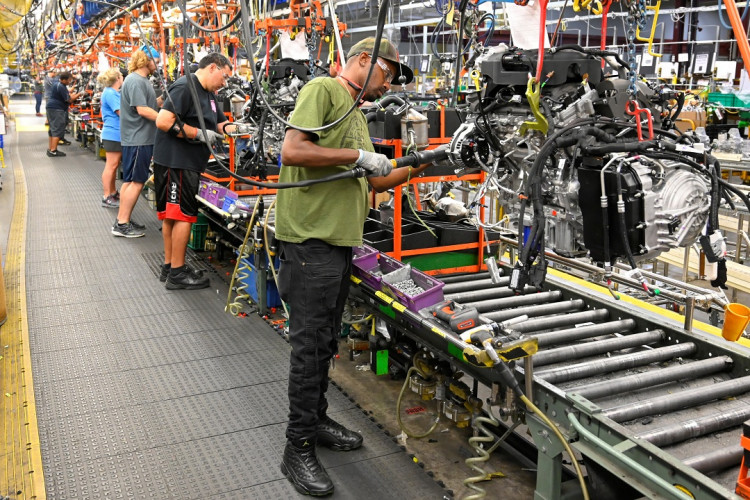In an unparalleled move that may redefine labor movements across the auto industry, the United Auto Workers (UAW) union on Sunday greenlit a 4½-year provisional contract with Ford Motor. This groundbreaking deal commits Ford to $8.1 billion in new plant investments and entitles UAW members to $5,000 ratification bonuses. Furthermore, the contract promises significant economic advancements, such as a compounded 25% wage increment and augmented profit-sharing packages.
The agreement now moves to the union's 57,000 Ford members for a final endorsement, a process that historically spans a few weeks. "We know it breaks records. We know it will change lives. But what happens next is up to you all," expressed UAW President Shawn Fain and UAW Vice President Chuck Browning in a joint communiqué.
This pivotal agreement follows targeted strikes that the UAW launched against Detroit's "Big Three" - Ford, General Motors, and Stellantis - post failed negotiations in September. While Stellantis reached an initial agreement with the UAW, General Motors' discussions remain ongoing.
Under this proposed contract, Ford is set to make significant investments, including $2.1 billion for an electric van in Ohio and $1.2 billion for EV production in Kentucky. Furthermore, it sets out wage hikes starting with an 11% bump upon agreement, subsequent 3% raises for three years, culminating in a 5% increment by October 2027.
In a digital broadcast, Fain underscored the larger implications of this contract. "One of our biggest goals...is to organize like we've never organized before," he said, hinting at prospective negotiations with more auto giants by 2028.
This landmark contract also introduces reforms such as a swift transition for temporary staff to permanent roles within three months, enhanced profit-sharing, two-week paternity leaves, and a boost in 401(k) contributions.
Remarkably, the contract's duration has been revised to four and a half years, ensuring its expiration on April 30, 2028. This strategic shift aims to synchronize the contract's deadline with International Workers' Day on May 1.
However, it's not all sunshine and rainbows. The UAW couldn't secure all its initial aspirations, such as a 40% salary augmentation, a 32-hour workweek, and comprehensive pensions for every worker.
Separately, in a broader context, UAW's President Shawn Fain characterized the significant strides in these agreements as a potential "turning point in the class war." Echoing a sentiment of solidarity, Fain encouraged unions worldwide to synchronize their contract timelines, emphasizing a collective stand against corporate giants. He envisions the UAW expanding its negotiations beyond the traditional Big Three to include global players by the next bargaining cycle.
As the UAW charts its path ahead with these landmark agreements, the looming question remains: will such lucrative contracts compromise Detroit automakers' competitive edge, or will they set a new benchmark for the entire industry?






